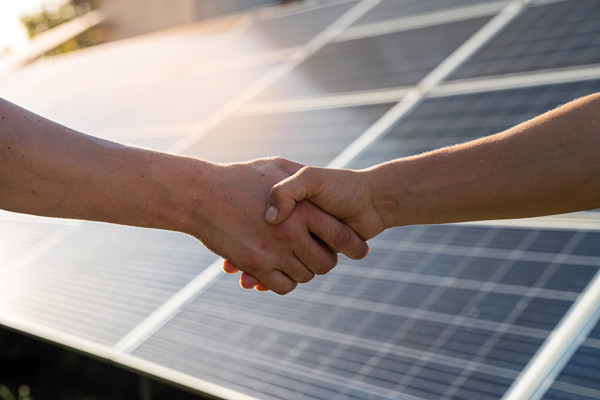Solar Lease
Solar power is a cost-effective option for renewable energy, both for homes and businesses. Nevada Solar Group offers solar products. However, homeowners must make a decision about solar leasing or buying solar panels.
A solar lease is a long-term agreement between a customer, and a provider of solar panels. Solar leasing is an option for homeowners who want to meet their energy needs but don't have enough capital to purchase a system. We'll examine whether a solar lease can be a smart investment.
What is Solar Leasing? How does it work?
The solar lease is similar to your utility bill. Customers will see some savings on their utility bills as the energy is generated locally by clean solar energy. You don't own the generator and aren't paying for an asset. Instead, you pay only for the electricity generated by the solar panel system.
A homeowner who has a solar leased system on their roof will no longer have to pay the utility for electricity. Instead, they will only be paying Nevada Solar Group. The 30% Federal solar tax credit is not available to homeowners. They can also depreciate your solar system's cost (which is something that you cannot do in any case), which saves them - and their investors- tax dollars.
Nevada Solar Group will agree to pay you a fixed amount for 20 years. At the end, we will take our equipment off your roof. The same way a car lease works. However, you won't be able to get the new system every 36 month.
For the first year, a typical lease from Nevada Solar Group installer would cost $99 per month. This will help you save approximately $500 each year. This lease also comes with an escalator, which is a predetermined annual rise.
The 2.9% escalator means that your lease will cost you more per month by year 6 than the loan. It would continue to rise for the next 14 years. The system will provide $23,000 in lifetime savings.
What is leasing and how does it differ from a Solar Power Purchase Agreement?
Solar leasing is a more cost-effective option than a solar power purchase arrangement (PPA). Customers pay rental income for solar panels, whereas customers from PPA pay per kwh generated. The cost of leasing solar panels is determined by their capacity, but the cost of renewable Power purchase agreements is determined by actual generation. Solar leases have a fixed price, which means that customers will harvest more benefits from the sun and save more money in the long run.
Solar leasing and solar PPAs are both contracts in which the consumer does not own the panels. However, each building owner must examine the specifics of prices, dependability, and cost savings.
Ending Your Solar Lease
Leasing solar panels can be a good option for customers who are moving or need to terminate their lease. The best part about solar leasing is that they offer the possibility to either transfer the lease to new owners or to have the panels removed.
Even if you don’t break your lease solar panels in a hurry, it will end eventually. Customers can choose to renew their lease or terminate the contract. Nevada Solar Group will remove and dismount the panels in the second instance.
Customers can also purchase solar panels at a reduced rate, which is often outlined in the original lease agreement.
Is a solar lease right for you?
It is a personal decision that will determine whether you lease, buy solar panels, participate in a PPA, or ignore solar. Here are some pros and cons to consider when considering solar leasing:
Solar Leasing: The Pros
There are many benefits to solar leasing, including these:
- There is no need to spend a lot upfront for solar panel installation
- When the market is volatile, lock in energy prices for the long-term
- Avoid the hassle of monitoring and maintaining equipment
- Save significant money on your utility bills
- Reduction of household carbon footprint
- Solar leases offer power production guarantees. This means that payments may be reduced if the panel produces less than expected.
Solar Leasing: The Cons
Although solar leasing may not be for everyone, there are some risks and concerns associated with these contracts.
- The leasing price rises each year as utility rates rise, which could lead to lower expected cost savings.
- You are not eligible for the federal solar tax credit (ITC), or other local benefits because you don't have solar panels.
- While there is no upfront cost, the system will likely last for a longer time than if you purchased the panels directly.
- Because they are not part of your property, leased solar panels won't add any value to it like the panels you own.
- If you want to move, breaking your lease can be difficult.
Nevada Solar Group is the best way to start your solar journey.
A solar lease is a great option if you want to keep your home for the next 20-25 years, and lower your electricity bills with minimal hassle. If you are looking to sell your home in the near future and get the best savings, a cash purchase or loan is the better option. You can get up to seven customized quotes from pre-vetted solar installers if you are ready to begin your solar journey. To maximize your solar savings, contact Nevada Solar Group and get a free quote from a top provider for your home.
































